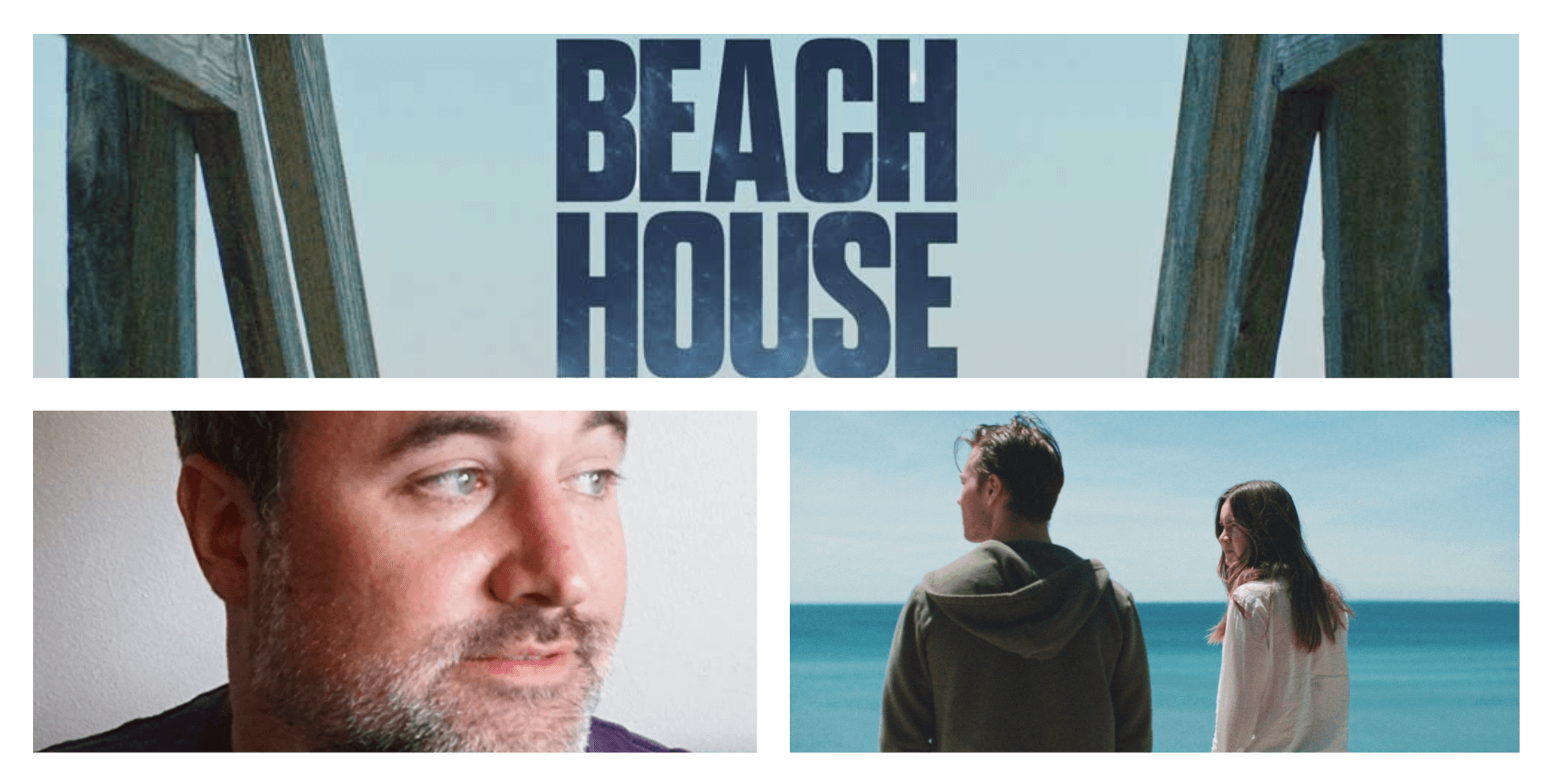Written and directed by Jeffrey A. Brown, The Beach House is a drama/horror/mystery film that centers on a young couple (Liana Liberato and Noah Le Gros) at a secluded beach house on a romantic getaway. When they discover the presence of a pair of unexpected guests, strange things start occurring in their environment. We got the opportunity to interview filmmaker Jeffrey A. Brown on the various stages of filmmaking of "The Beach House," — which is now available on VOD, Digital, Blu-ray, and DVD, starting December 15, 2020.
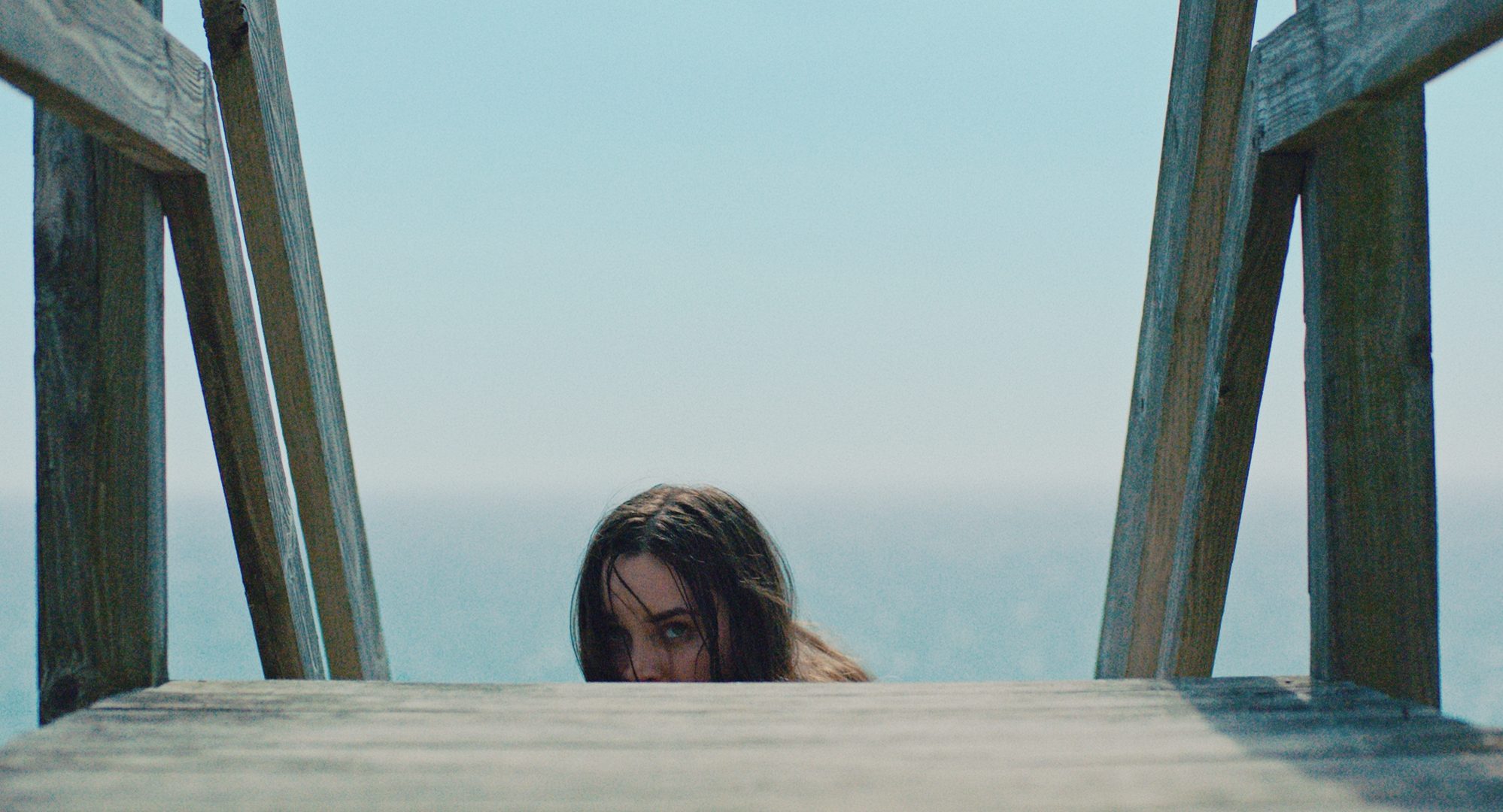
Photos courtesy of RLJE Films
What was your inspiration for The Beach House? How did you approach the writing process?
The goal was to make a contained, low budget horror film. It was somewhat reversed engineered from the traditional indie trope: Four characters, one-ish isolated location, short time span. I love the vibe/look of coastal beach houses — they are large and unrenovated, both factors make them appealing for filming. So the story came from that loose, production-minded idea and then evolved over time – from a more psychological horror story into cosmic horror.
While writing, I hadn’t seen what I would consider a good example of modern cosmic horror, so that’s what I was wanting to make. And I started reading a lot of contemporary science non-fiction and classic horror fiction – the parallels between the 1920s-30s Lovecraftian sci-fi horror and the existential threat posed by climate change are striking. The shrug of the planet (and the universe) to our lives. I feel I’ve developed my own writing process since writing The Beach House. This was a bit of feeling around in the dark, and I found it difficult to stick within the parameters I was creating for myself.
How did you come up with the ending? Inquiring minds would like to know, what was 'the fog'?
SPOILER ALERT! The very end of the film has been slight variations of what it wound up being for many drafts. The solitary figure lying on the beach with the ocean looming. And while Emily has started a physical reversion, we don’t know what’s happening to her insides. This all might be the start of the next phase of the evolution of organic life on Earth.
I do like movies that are open to interpretation. The Beach House leaves clues for viewers that really add up upon multiple viewings. As much as I have a very clear idea of what the fog is, it’s more important that the viewer piece together their own idea of the fog. Carbon-based lifeforms on this planet carry out several base processes to sustain individual existence: Self-preservation, reproduction, consumption/digestion, respiration. Taking something in, processing it, then emitting waste. So if the air people breathe allows us to exist, if that air changes, then we would change. Though, most likely, we would just die!
The earth really is like a raindrop in our solar system. On Venus, say, the atmosphere would be poisonous to humans (and most life on Earth), but there are very small extremophiles that could possibly live on Venus, or in harsh areas on Earth, like hydrothermal vents on the ocean floor. Life could adjust to a new atmosphere. So let’s just leave it that as Earth-life started in the bottom of the ocean, an adjustment to our atmosphere might make the Earth inhospitable to us, and this adjustment might come from something bubbling up from a hydrothermal vent — a change in the atmosphere that’s a variation on what’s happening with climate change. There’s the climate denial argument that everything is cyclical on the planet, well yeah, it’s just that this cycle that’s beginning is the end of humanity. But traces of life might persist and become something else, we might break down back to microbial life and then in another billion years become something new. In the movie, we sped up the evolutionary process, and it manifests itself as a horrible, regressive, infectious sickness.
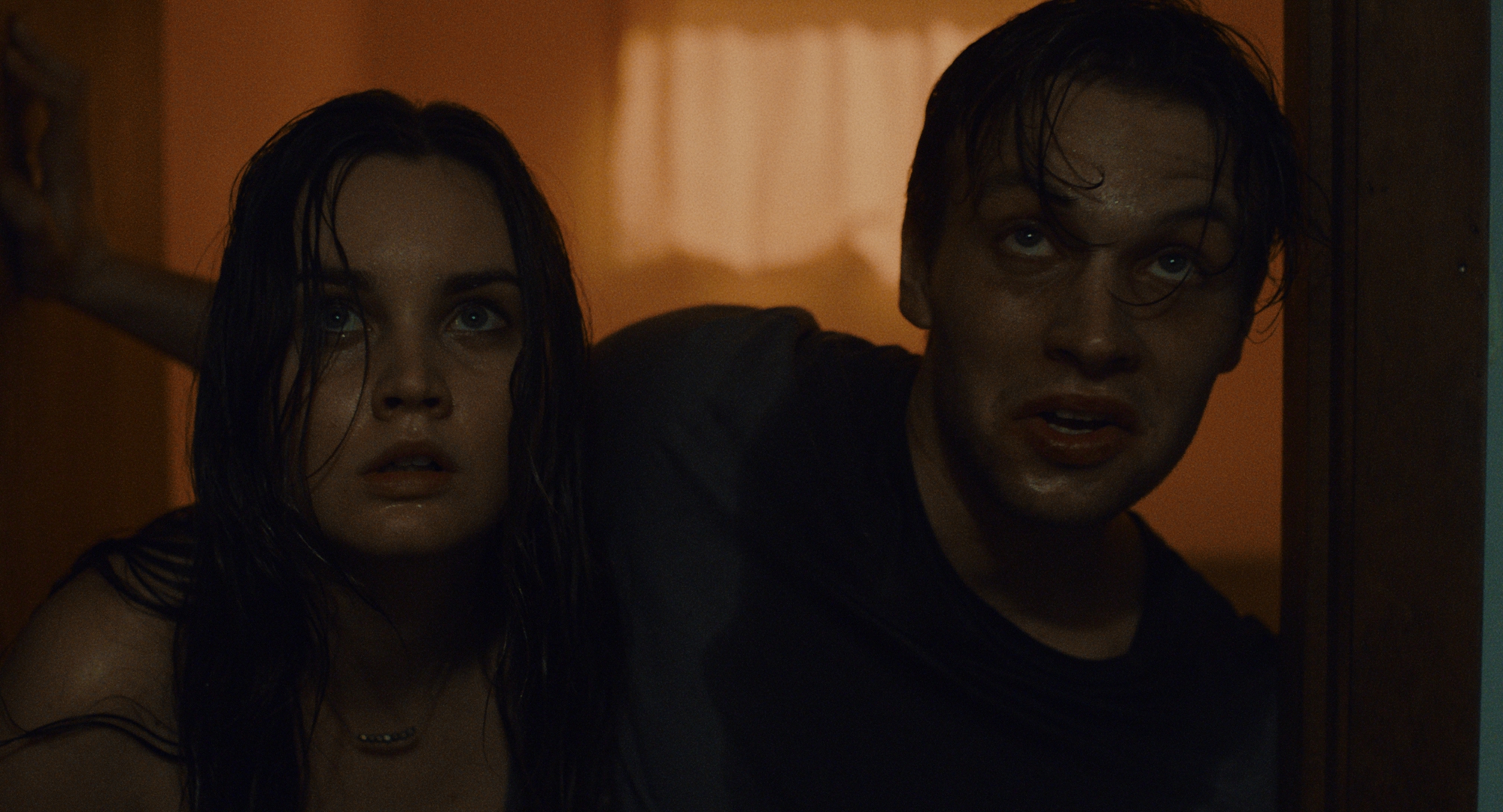
What was the casting process like for The Beach House?
It was tricky, primarily because it was a completely new experience for me: the pretty standard casting process of making lists of potential actors and then going out to agents and managers to try to find these characters. I met with Noah in person in New York City and we really hit it off – he’s just a great guy and really smart. We had an instant rapport and I felt comfortable with him. The other three actors weren’t cast until much closer to filming and they weren’t based in NYC, so I didn’t meet them until right before we started beyond phonecalls or facetime.
What were your standout shots/scenes from directing "The Beach House"?
The first days of any shoot are really trying to find your footing – communicating with the actors and crew, seeing what works. I think our first few shoot days were pretty mundane, Randall and Emily stuff in the house. And the weather was gloomy, so this whole time I wanted it to be an unseasonably warm look (which you’d get through a sunny clear day) and that threw me off. Then by about day 3, we shifted to some of the night work where we started dealing with smoke machines and makeup and I instantly felt more comfortable with what we were shooting and there was the sensation that “Yes, I can do this.” I kind of remember the whole shoot like a dream – it all blurs together as one long day/night.
What was it like shooting on-location in Massachusetts, USA? How long did production last?
Visually, Cape Cod was astounding. I haven’t seen many films that have set their whole stories on the Outer Cape – there’s Norman Mailer’s Tough Guys Don’t Dance that shot in Provincetown. Then movies/series like Hightown and Hot Summer Nights are set in the Cape, but beyond some establishers, they don’t shoot the whole thing there – it’s challenging to shoot on the Outer Cape on a big production logistically, there isn’t room for the whole circus.
We gave ourselves a bit of a minefield in terms of weather. Typically on a shoot, you would go into the stage if it’s raining. We didn’t have a stage, and beyond rain, we were concerned with cloud cover (it was supposed to be unseasonably warm), wind (for the fog), and even tides. The film was designed to be flexible and luckily our AD Dan Taggatz was able to adjust for the elements – which plays into the themes of the movie! We shot for 18 days with some pickups and establishing shots at later dates.
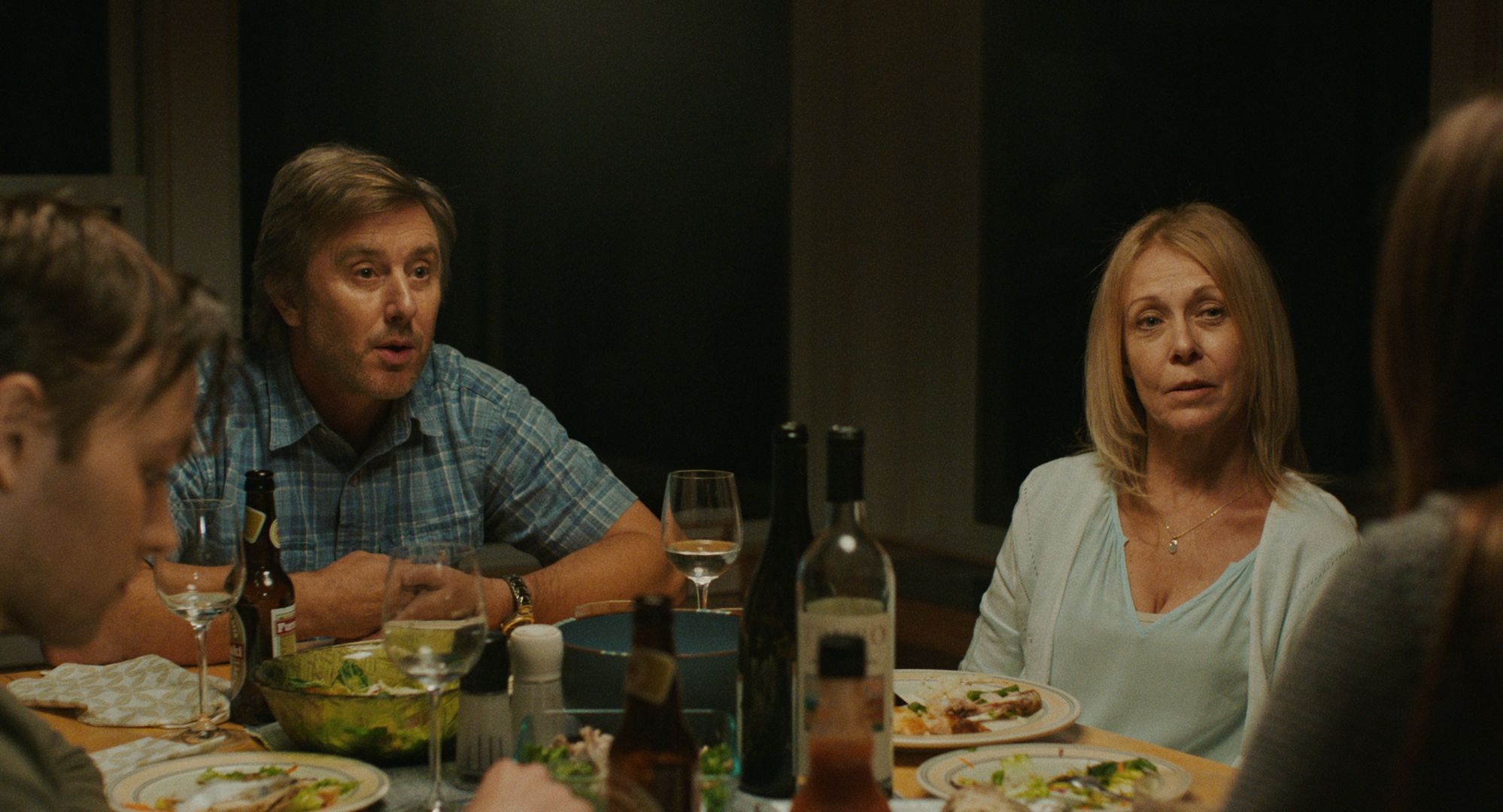
What was it like working with Cinematographer Owen Levelle on the aesthetic for The Beach House?
Owen was great – he literally carried the film on his shoulders. He’s shot a lot of documentaries and I responded to how he handled naturally lit environments – I really wanted our film to feel organic. I sent Owen a laundry list of films that I responded to in terms of cinematography and texture – like Michael Winterbottom’s A Summer in Genoa and Drake Doremus’s Like Crazy – that weren’t necessarily horror films. He sent me Mizoguchi’s Ugetsu and Apichatpong Weerasethakul’s Uncle Boonmee Who Can Recall His Past Lives as some films he wanted to bring into The Beach House. The horror references were understood so we were looking to movies that weren’t necessarily horror to bring their elements into our film. And we went to see the band Sunn O))) play in Queens – they use a lot of fog!
What role did VFX play in the production of The Beach House?
After about the 2nd day of shooting, there were VFX elements on basically every day of production – from smoke machines, slimy water, bioluminescence then getting into blood and gore, and creepy crawly things. There’s a ton of FX in the movie. We did wind up using some CG to blend some of the FX but everything was initially shot practically.
We had a small crew so when we got into the more involved FX, it would be all-hands-on-deck – our production designer Paul Rice, makeup artist Jennifer Suarez, and FX makeup Pete Gerner would all be working together to mess up Noah and Liana, who were absolute super troopers throughout the movie.
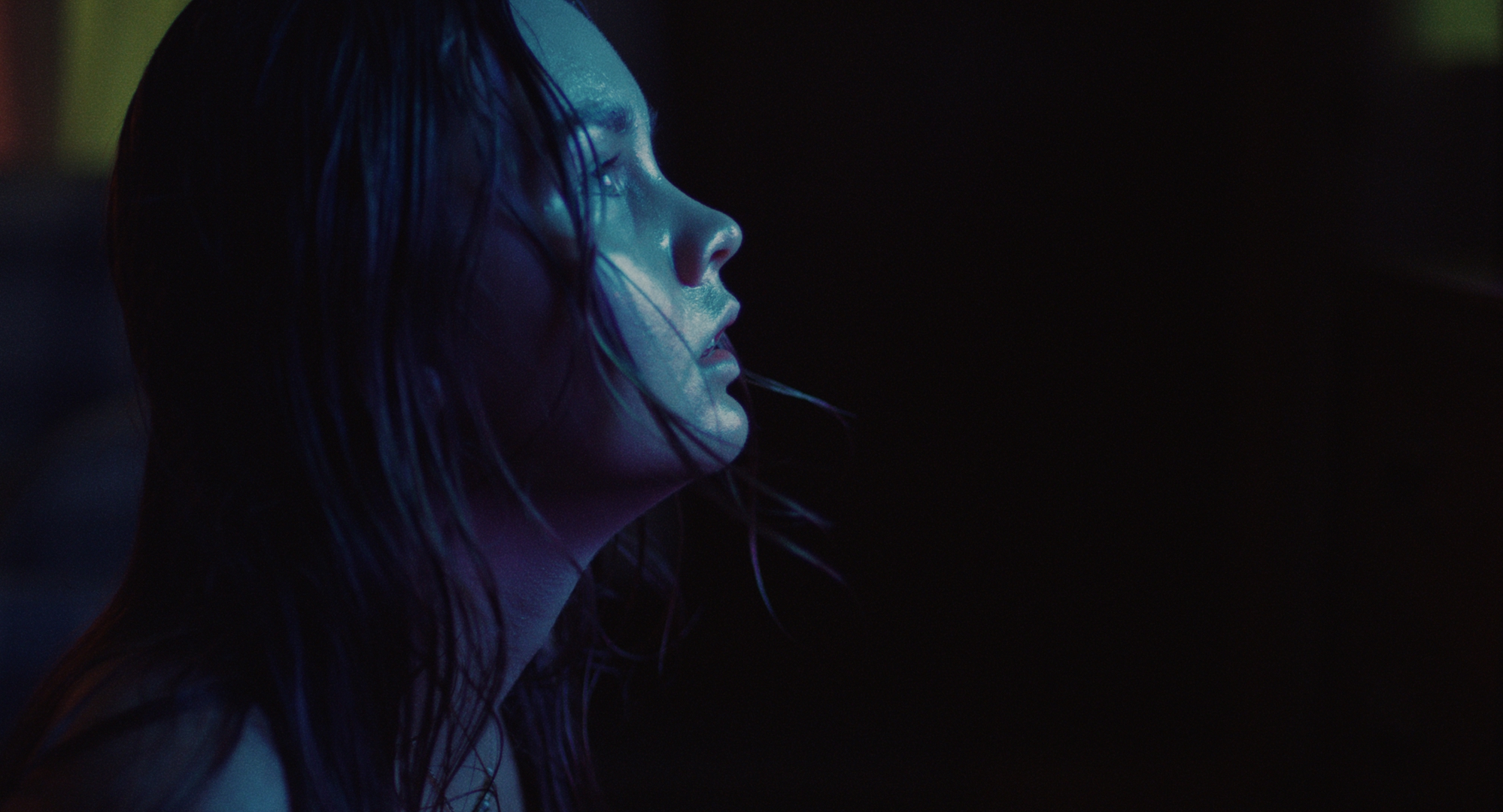
How did you find the post-production process with Editor Aaron Crozier? What's your favorite edited scene in the film?
I’d actually met Aaron years ago – we both have an on-set production background and he had AD’d a mutual friend of our’s feature. We are both midwestern transplants who’d worked in NYC independent films for years so we have many friends in common. I really learned a lot from Aaron, primarily about the relationship between script, shoot, and edit – that’s really the learning curve you hit on your first feature because as a writer you’re not quite sure what the audience needs in terms of information until you start cutting it together. After we were done editing, I went back and rewrote three of my old scripts with what I learned from Aaron in mind.
Well, the foot scene really came together. It’s the one that audiences respond to! Even when we were shooting it, the producers were like “this looks amazing.” I felt that that sequence and another one where Emily goes to sleep came together quickly in the edit.
Which films/directors have influenced you as a filmmaker and your film, The Beach House? What are some of your favorite movies from the past decade?
I kind of divide my influences into two different categories - as a film-watcher and then as a filmmaker. I’m very fortunate to come from a production background and have been able to work for many really inspiring filmmakers: Tony Scott, Jean-Marc Vallee, Jim Jarmusch, Ryan Fleck & Anna Boden, Zal Batmanglij, Craig Zobel. The company Indigent (who made Pieces of April and Tadpole), and the movies The Celebration, Gummo, George Washington, and Donnie Darko all hit me around the same time and are very important to me.
For The Beach House: Shivers, The Brood, Rabid, Invasion of the Body Snatchers (1956, 1978, 1993), Alien, The Thing (Carpenter), The Fly (Cronenberg), The Quatermass Experiment, Quatermass & the Pit, Prince of Darkness, Upstream Color, Vampyr, Empire of the Sun, Creepshow 2, Xtro, Like Crazy, A Summer in Genoa, Red Desert, and See the Sea.
My favorites of the last decade: The Babadook, The Love Witch, Mandy, Us, Insidious, Green Room, Blue Ruin, The Skin I Live In, The Duke of Burgundy, Aniara, Upstream Color, Coherence, Starfish, The Platform, Mustang, and Moneyball.
Watch The Beach House via Amazon
